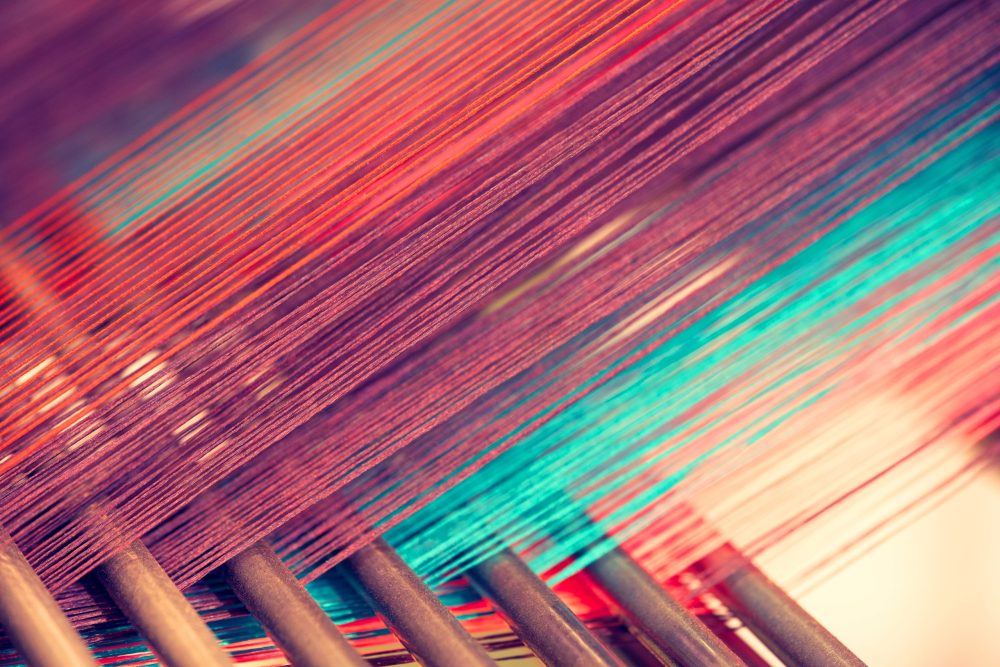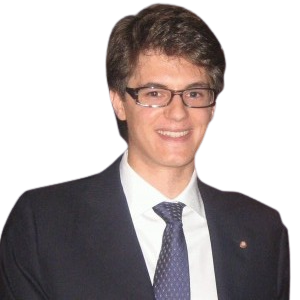
MAGNOLAB: the European textile innovation district
Interview with Giovanni Marchi (President MagnoLab / CEO Marchi & Fildi S.p.a. and Filidea S.r.l.)
ENG
 MAGNOLAB – A network of companies in the textile supply chain established in Biella in 2022, MagnoLab specialises in research activities for product innovation and circular economy solutions. The project was initiated by six textile companies: Marchi & Fildi S.p.a., Filidea S.r.l., DBT Fibre S.p.a., Di.Vè S.p.a., Maglificio Maggia S.r.l. and Tintoria Finissaggio 2000 S.r.l., later joined by De Martini S.p.a. and Pinter Group.
MAGNOLAB – A network of companies in the textile supply chain established in Biella in 2022, MagnoLab specialises in research activities for product innovation and circular economy solutions. The project was initiated by six textile companies: Marchi & Fildi S.p.a., Filidea S.r.l., DBT Fibre S.p.a., Di.Vè S.p.a., Maglificio Maggia S.r.l. and Tintoria Finissaggio 2000 S.r.l., later joined by De Martini S.p.a. and Pinter Group.
Good morning Dr. Marchi, there has been a lot of talk in recent months among textile industry insiders and professionals about the new MagnoLab project. What are the strengths of this ambitious programme?
MagnoLab is a network of companies that we founded in Biella in 2022, starting with six member companies. The fulcrum of the project is a cutting-edge textile research centre, which we opened in Biella and which to date is unique worldwide, because it is equipped with a fleet of textile machines that are used exclusively for research and development purposes, with an integrated supply chain on an industrial scale and not purely laboratory.
What are the main objectives of the research programme carried out within MagnoLab?
There are essentially three aims:
1. INNOVATION: the development of new innovative textile products and processes, with the strong involvement of schools, young people and the world of research and technical training;
2. THE CIRCULAR ECONOMY: the research and development of new textile products derived from recycled materials.
3. SUPPORT FOR THE WORLD OF TECHNICAL TRAINING.
How important is the circular economy theme in the textile world today?
I would say that it is a fundamental and unavoidable theme, for ethical reasons and also for a very concrete reason: from 2025 onwards, the obligation of separate collection of textile products will come into force at European level, i.e. all European citizens will have to get used – when they sort their daily waste at home – to using a new ‘textile bin’, in which to place the clothes they no longer intend to use. There will be a lot of material to recycle and companies cannot be unprepared. The search for new products and new recycling methods in the textile chain will soon be the most important issue for the sector
When and how did the idea for the MagnoLab project come about?
It was born a few years ago, in 2017 to be precise, from a trip to Silicon Valley with a group of young textile entrepreneurs from Biella. In Silicon Valley, we got to know several start-ups and innovative companies up close, and later visited a major university textile research centre in Tel Aviv, Israel, and a large academic textile laboratory and research centre in Sweden.
The question we asked ourselves as entrepreneurs – as a result of these trips – was this: how is it possible that in Italy – the home of fashion – there is no major centre at the forefront of textile research and innovation? And also: is it possible to open such a research centre but with an industrial connotation and not – as we have seen elsewhere – merely laboratory and academic?
We answered these questions by opening MagnoLab.
How much money have you invested in the MagnoLab project?
Overall, the investment to date has been 12 million euros, of which 7.3 million put in by us and 4.7 million approved as public funding under the PNRR (National Recovery and Resilience Plan), which is the programme through which the Italian government manages Next Generation Eu funds.
It is also fair to point out, in this regard, that the funding came later: we had already decided on the investments, and we would have continued the project even without public support. That said, in the PNRR call for proposals for the circular economy and recycling, we ranked first in Italy, achieving the highest score nationwide, which fully confirms the interest of our project.
MagnoLab is an innovative project. Can it also help attract more young people to the textile world?
This is a fundamental hope and goal. We entrepreneurs in the sector must succeed in overturning the cliché that sees textiles as an old and decadent world, with old factories full of obsolete and dusty machinery.
Today in Italy, textiles – more and more – is becoming synonymous with research, technology and innovation, and we must make it clear that certain cloying clichés no longer correspond – for some time – to the reality of the facts.
In MagnoLab we are trying to involve young people and schools in a project that has the strength to be attractive in the eyes of the new generations.
Is MagnoLab a closed circuit, open only to companies in the Biella textile district? Or would you like companies from other Italian and European territories to join?
We want to expand as much as possible, involving textile companies not only from Biella and not only from the other Italian textile districts, but I would say – more generally – from all over Europe, without excluding the involvement of non-European companies as well. Moreover, we already have among our member companies an important textile company from Barcelona, the Pinter Group.
In the textile world we must succeed in creating a system, avoiding closures in niches that benefit no one and prevent us from being competitive.
ITA
Intervista a Giovanni Marchi (Presidente MagnoLab / CEO Marchi & Fildi S.p.a. e Filidea S.r.l.)
MAGNOLAB – Rete di imprese della filiera tessile nata a Biella nel 2022, MagnoLab è specializzata in attività di ricerca per l’innovazione di prodotto e per le soluzioni di economia circolare. Il progetto è stato avviato da sei aziende tessili: Marchi & Fildi S.p.a., Filidea S.r.l., DBT Fibre S.p.a., Di.Vè S.p.a., Maglificio Maggia S.r.l. e Tintoria Finissaggio 2000 S.r.l., cui si sono successivamente aggiunte De Martini S.p.a. e Pinter Group.
Buongiorno Dott. Marchi, tra gli addetti ai lavori e i professionisti del settore tessile si sta parlando molto in questi ultimi mesi del nuovo progetto MagnoLab. Quali sono i punti di forza di questo ambizioso programma?
MagnoLab è una rete di imprese che abbiamo fondato a Biella nel 2022, partendo con sei aziende associate. Il fulcro del progetto è un centro di ricerca tessile all’avanguardia, che abbiamo aperto a Biella e che costituisce ad oggi un unicum a livello mondiale, perché è dotato di un parco di macchine tessili che vengono utilizzate esclusivamente per scopi di ricerca e sviluppo, con una filiera integrata su scala industriale e non puramente laboratoriale.
Quali sono i principali obiettivi del programma di ricerca che si svolge all’interno di MagnoLab?
Gli scopi sono essenzialmente tre:
1. L’INNOVAZIONE: lo sviluppo di nuovi prodotti e processi tessili innovativi, con il forte coinvolgimento delle scuole, dei giovani e del mondo della ricerca e della formazione tecnica;
2. L’ECONOMIA CIRCOLARE: la ricerca e lo sviluppo di nuovi prodotti tessili derivanti dal riciclo dei materiali.
3. IL SUPPORTO AL MONDO DELLA FORMAZIONE TECNICA.
Quanto è importante oggi il tema dell’economia circolare nel mondo tessile?
Direi che è un tema fondamentale e ineludibile, per motivi etici e anche per una ragione molto concreta: dal 2025 entrerà in vigore a livello europeo l’obbligo di raccolta differenziata dei prodotti tessili, ovvero tutti i cittadini europei dovranno abituarsi – quando smistano quotidianamente i rifiuti a casa propria – ad utilizzare un nuovo “bidone del tessile”, nel quale collocare i vestiti che non intendono più utilizzare. Ci sarà tantissimo materiale da riciclare e le aziende non possono farsi trovare impreparate. La ricerca di nuovi prodotti e di nuovi metodi di riciclo nella filiera tessile sarà a breve la tematica più importante per il settore
Quando e come è nata l’idea del progetto MagnoLab?
È nata alcuni anni fa, e precisamente nell’anno 2017, a partire da di un viaggio nella Silicon Valley con un gruppo di giovani imprenditori tessili biellesi. Nella Silicon Valley abbiamo conosciuto da vicino diverse start up e imprese innovative, e successivamente abbiamo visitato un importante centro universitario di ricerca tessile a Tel Aviv, in Israele, e un grande laboratorio e centro di ricerca tessile accademico in Svezia.
La domanda che come imprenditori – a seguito di questi viaggi – ci siamo posti è stata questa: come è possibile che in Italia – patria della moda – non ci sia un grande centro all’avanguardia per la ricerca e l’innovazione tessile? E inoltre: è possibile aprire un centro di ricerca di questo tipo ma con una connotazione industriale e non – come abbiamo visto altrove – meramente laboratoriale e accademica?
Abbiamo risposto a queste domande aprendo MagnoLab.
Quanti soldi avete investito nel progetto MagnoLab?
Nel complesso l’investimento è stato, finora, di 12 milioni di euro, di cui 7 milioni e 300mila messi da noi e 4 milioni e 700 mila approvati come finanziamenti pubblici nell’ambito del PNRR (Piano Nazionale di Ripresa e Resilienza), che è il programma con cui il governo italiano gestisce i fondi europei del Next Generation Eu.
È giusto peraltro precisare, a questo proposito, che il finanziamento è arrivato dopo: noi avevamo già deciso e deliberato gli investimenti, e avremmo portato avanti il progetto anche senza supporto pubblico. Ciò detto, nell’ambito del bando PNRR per l’economia circolare e il riciclo ci siamo classificati al primo posto in Italia, ottenendo il punteggio più alto a livello nazionale, il che conferma in pieno l’interesse del nostro progetto.
MagnoLab è un progetto innovativo. Può aiutare anche ad attrarre nel mondo tessile un numero maggiore di giovani?
Questa è una speranza e un obiettivo fondamentale. Noi imprenditori del settore dobbiamo riuscire a rovesciare il luogo comune che vede nel tessile un mondo vecchio e decadente, con stabilimenti d’epoca pieni di macchinari obsoleti e impolverati.
Oggi in Italia il tessile – sempre di più – sta diventando sinonimo di ricerca, di tecnologia e di innovazione, e dobbiamo far capire che certi stucchevoli luoghi comuni non corrispondono più – da tempo – alla realtà dei fatti.
In MagnoLab cerchiamo di coinvolgere i giovani e le scuole in un progetto che ha la forza per essere attrattivo agli occhi delle nuove generazioni.
MagnoLab è un circuito chiuso, aperto soltanto alle aziende del distretto tessile biellese? O invece auspicate l’ingresso di aziende di altri territori italiani ed europei?
Vogliamo espanderci il più possibile, coinvolgendo aziende tessili non solo di Biella e non solo degli altri distretti tessili italiani ma direi – più in generale – di tutta Europa, senza escludere peraltro il coinvolgimento anche di realtà extraeuropee. Peraltro già oggi abbiamo tra le aziende associate un’importante realtà tessile di Barcellona, Pinter Group.
Nel mondo tessile dobbiamo riuscire a fare sistema, evitando chiusure in nicchie che non giovano a nessuno e che impediscono di essere competitivi.

